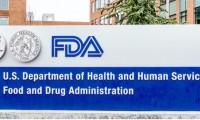-
Samsung Bioepis, J&J Ink Settlement and License Deal for Stelara Biosimilar
- Source: drugdu
- 130
- December 4, 2023
-
FDA to investigate risk of T-cell malignancy from CAR-T cell immunotherapies
- Source: drugdu
- 105
- December 4, 2023
-
FDA opens investigation into secondary cancer risk with CAR-T therapies
- Source: drugdu
- 98
- December 1, 2023
-
FDA Launches Probe of Malignancies Linked to CAR-T Therapies
- Source: drugdu
- 114
- November 30, 2023
-
FDA investigates ‘serious risk’ of secondary cancer following CAR-T treatment
- Source: drugdu
- 229
- November 30, 2023
-
Alkermes Spins Off Oncology Business with $275M to Focus on Neuroscience
- Source: drugdu
- 127
- November 17, 2023
-
GSK’s momelotinib recommended by CHMP to treat myelofibrosis patients with anaemia
- Source: drugdu
- 98
- November 15, 2023
-
HHS Considers Removing J&J’s Stelara from Medicare Drug Price Negotiations
- Source: drugdu
- 114
- November 9, 2023
-
Sangamo tightens the belt, cutting staff and assets to advance product pipeline
- Source: drugdu
- 183
- November 5, 2023
-
Royalty Boosts Struggling PTC with Additional $1B for Royalties on Roche’s Evrysdi
- Source: Kate Goodwin
- 120
- October 21, 2023
your submission has already been received.
OK
Subscribe
Please enter a valid Email address!
Submit
The most relevant industry news & insight will be sent to you every two weeks.













